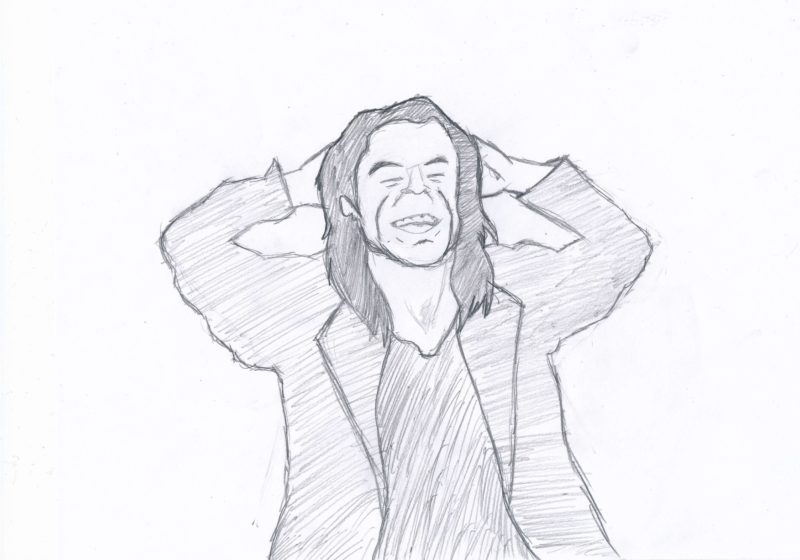One of the most compellingly amusing phenomena of our ironic age is the rise of the “so-bad-it’s-good” movie. Genuinely terrible films like “The Kissing Booth,” intentionally awful, campy schlock-fests like “Sharknado,” and off-kilter flicks like “A Talking Cat?” have all developed cult followings. They have thrilled film students and fans alike, and proven themselves to have a very distinct, offbeat niche appeal.
Any true aficionado of the awful will tell you there’s one bad movie whose appeal is leaps and bounds beyond any other’s. The 2003 film “The Room,” which opened to a measly audience in a single Los Angeles theater, has only become increasingly popular since its debut. Inspiring armies of fans, including notable names like J.J. Abrams and Bryan Cranston, and the 2017 Oscar-nominated film “The Disaster Artist,” “The Room” is in a class of its own.
The movie is written, directed by, and stars the wholly unique Tommy Wiseau, whose impossible-to-place accent, long, greasy black hair, and freakishly rippling latissimus dorsi, all make plentiful appearances over the film’s increasingly incomprehensible 99 minutes.
“The Room” went through several incarnations. Wiseau failed to publish a seven-act play, which was then adapted into an equally unmarketable novel which was hundreds of pages long. Only then was it refined into its final filmic incarnation and self-produced, resulting in the unfortunate tagline, “A Film with the Passion of Tennessee Williams.” The movie finally stuck, despite flopping at the box office against its alleged $6 million budget (Wiseau claims he raised the money by “importing leather jackets from Korea.”)
But how does “The Room” succeed in drawing us in? It’s creepy, poorly-paced, confusingly written and weirdly edited, with a score so mediocre and ill-fitting that it’d be smoother with no music at all. The acting and character writing can only be described as otherworldly. An IMDb reviewer going by “Rogansi” wrote, “it was as if a deer made a movie about human interaction, unable to comprehend what it is to be a human being.”
But it’s clear that Wiseau genuinely intended to craft an homage to the Hollywood drama, that cornerstone of American culture. Mark (played by Greg Sestero), the hapless best friend of Wiseau’s character, was named after Matt Damon.Arguably the most famous scene in the entire movie — an enraged Johnny’s desperate cry, “you’re tearing me apart, Lisaaah!” — is a direct reference to the 1955 James Dean classic, “Rebel Without a Cause.”
This, I think, is why “The Room” has outpaced and out-entranced anything in its league. There’s a kernel — subtle, but unmistakable — of real, honest truth and humanity in “The Room.”
Wiseau has utterly failed to craft the emotional American classic he dreamed of, but in that failure he’s stumbled upon something a lot more profound. It’s a bizarre, fucked-up take on what a dramatic movie is. The movie has scattered, vanishing plotlines and a cast and story that are only possible to understand through the cliches Wiseau liberally employs in their development.
But it’s still one bizarre, fucked-up guy’s vision of what we (modern Americans) will relate to and enjoy. It’s simultaneously heartwarming (he sincerely wants us to love this movie), unsettling (how could he possibly think we would?) and thought-provoking (we do, though, don’t we?).
It’s funhouse mirror America, sure, but beyond all the warped characters, inhuman dialogue, and seemingly random shifts in tone, there’s a shred of real, plaintive humanity. It speaks to us, and we listen.





